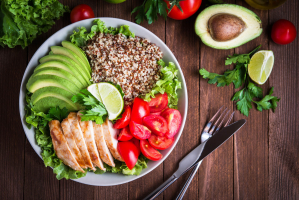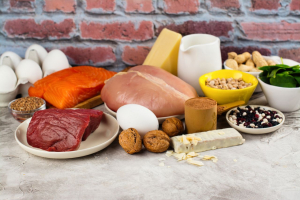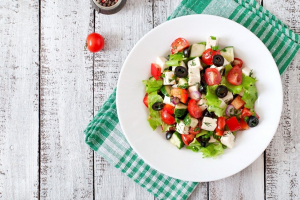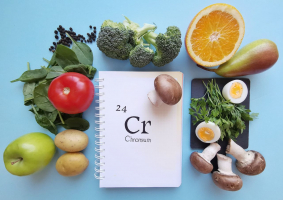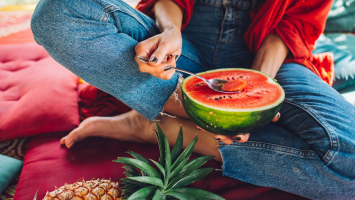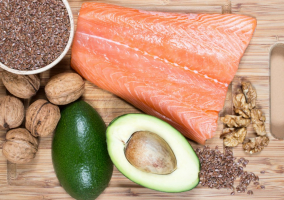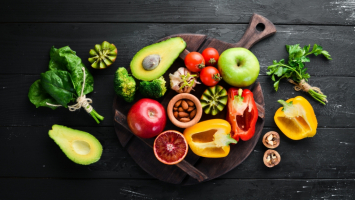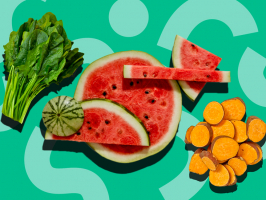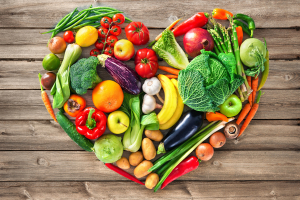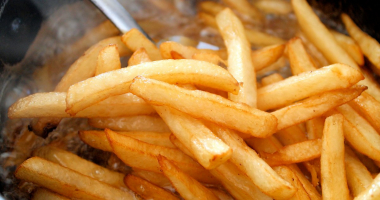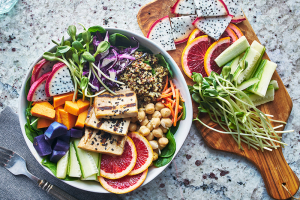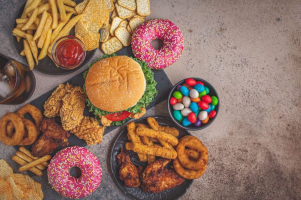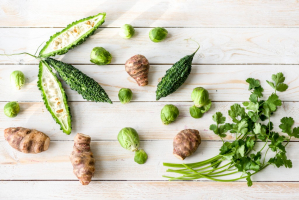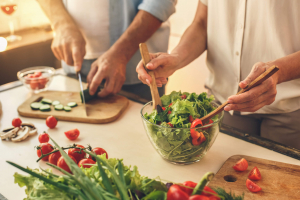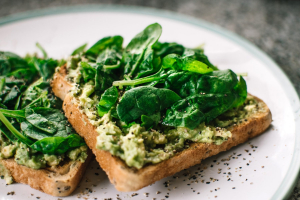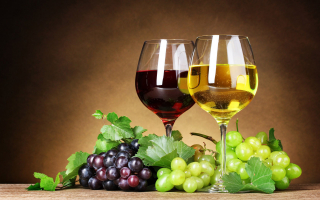Top 15 Foods That Pack More Potassium Than a Banana
Your body needs potassium, an essential mineral and electrolyte, to support healthy nerve and muscle function, maintain normal blood pressure, and transport ... read more...nutrients into your cells. But the majority of people do not consume enough potassium in their diets. Less than 0.015% of adult Americans in America are thought to consume enough potassium each day. Most people think of bananas as the go-to meal to up their potassium intake because one medium banana has about 9% of the DV for this mineral. However, potassium can also be found in other foods besides bananas. Below are some foods that have more potassium per serving than a banana.
-
The disease can be prevented and reversed with the aid of a healthy lifestyle and a nourishing diet. You can include avocados as a healthy food. Avocados provide you with vitamins, minerals, and excellent fats that keep your body healthy and prevent disease.
Avocados are a great source of vitamin K, folate, and healthy fats. A half avocado (68 grams) without the skin or seed has 345 milligrams of potassium or 7% of the daily value. A whole avocado provides about 15% of the daily value (DV) all at once. Additionally, avocados may help those with high blood pressure, who frequently need to consume more potassium and less sodium. Avocados are low in sodium, similar to most other fruits; half of the avocado only contains 0.2% of the DV for sodium.
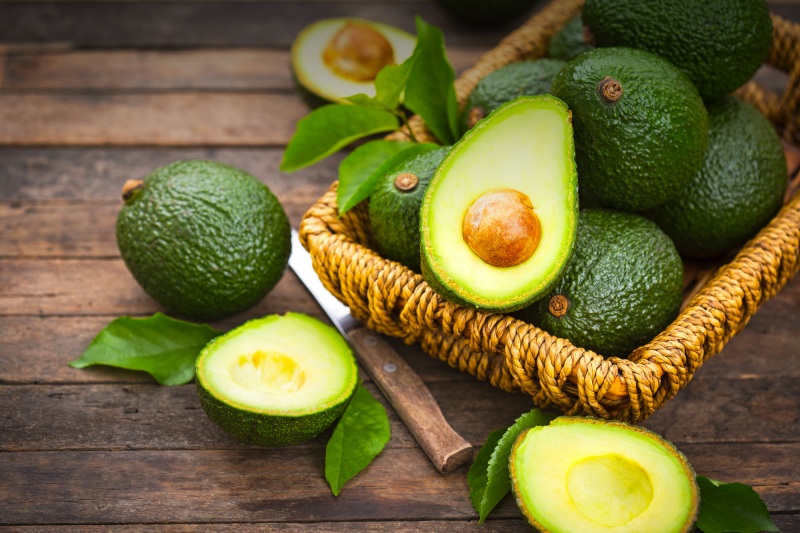
Avocados 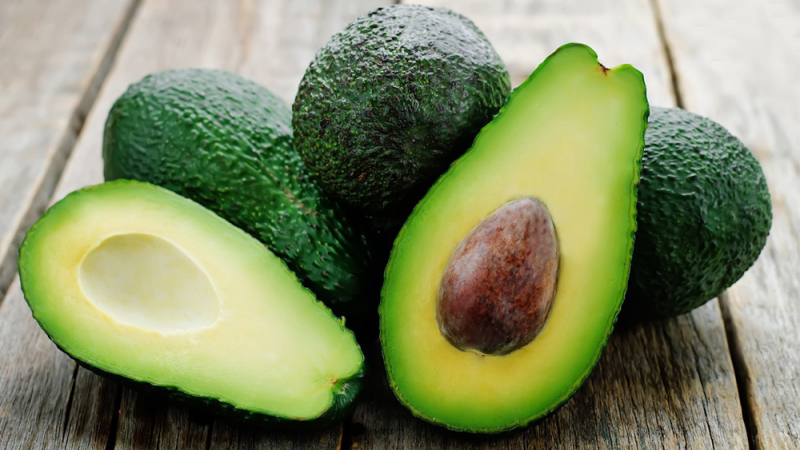
Avocados -
White potatoes are frequently swapped out for sweet potatoes. They are a very healthy way to supplement your potassium intake. 16% of the DV is included in a 1-cup (328-gram) serving of mashed sweet potatoes.
Additionally, sweet potatoes are a good source of fiber, complex carbs, and low-fat calories. They also contain a small amount of protein. Additionally, they are a great source of vitamin A, which is essential for vision. You can get 400% of your daily requirement for vitamin A from only one sweet potato. Your immune system, your body's defense system against infection, and your eyes both benefit from this. You may combine these delicious root vegetables with a protein source like beans or meat, some dark greens or colorful vegetables, and a small amount of fat for a balanced and filling meal.
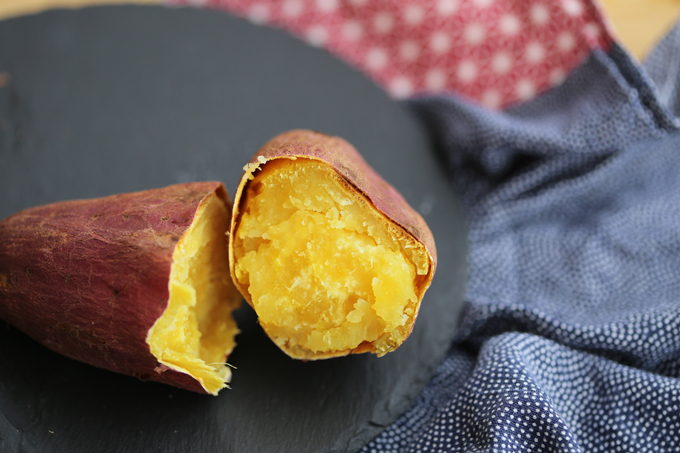
Sweet potatoes 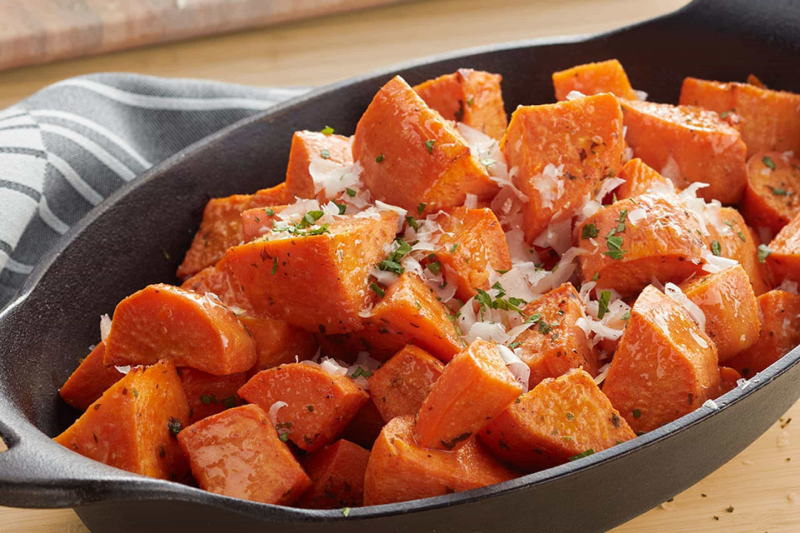
Sweet potatoes -
Spinach is a great staple to add to your diet. This leafy green vegetable grows all year round and is packed with vitamins and minerals. Though not the most exciting of foods, the health benefits of eating spinach are abundant.
One of the veggies with the highest nutrients is spinach. Spinach is rich in several minerals that your body needs, including potassium. Consuming foods that are high in potassium helps lower your blood pressure. The potassium content of just 1 cup (190 grams) of frozen spinach is 12% of the DV. Similar to raw spinach, which has around 3 cups (90 grams) of it, has about 11% of the DV. It has a good amount of additional nutrients. The same serving of frozen spinach has 37% magnesium, 127% folate, 857% vitamin K, and 127% vitamin A daily values.
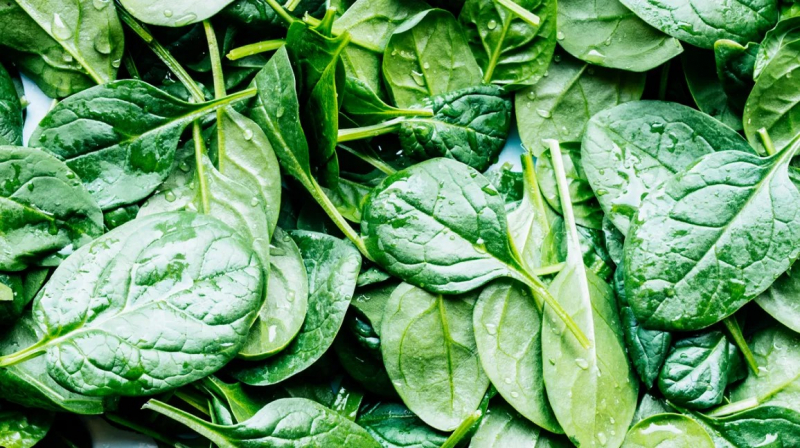
Spinach 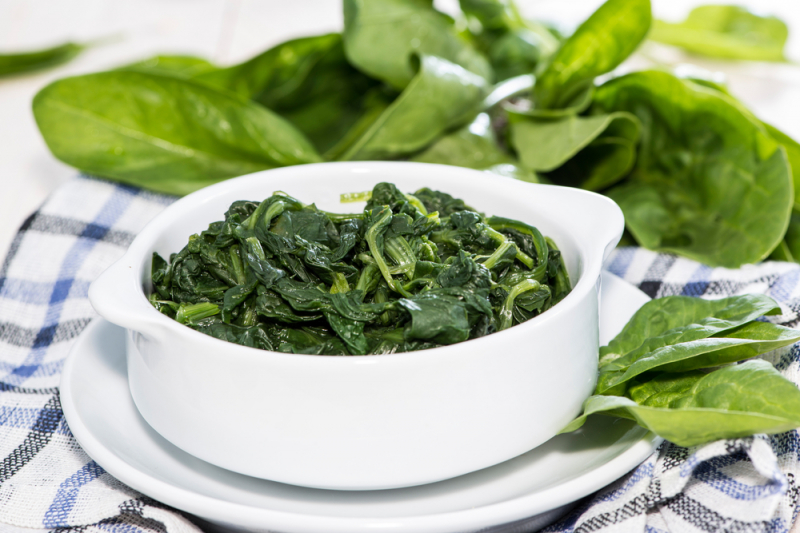
Spinach -
A crisp, juicy, cool slice of watermelon best captures the spirit of summer. It's a mainstay of backyard barbecues, and your local farmers' markets are packed with it right now. According to the National Watermelon Promotion Board, watermelon can be classified as either a fruit or a vegetable. It is also highly nutritious.
Nutritionists say watermelon is low in calories and sugar and chock-full of vitamins, minerals, and antioxidants, making it a great addition to a healthy diet. You can eat many servings of watermelon every day without worrying about its long-term nutritional effects because it is low in calories and sugar. Only two slices (or roughly 1/8 of a melon, or 572 grams) offer 14% of the DV for potassium. 44 grams of carbs, 3.5 grams of protein, 0.8 grams of fat, and 2.2 grams of fiber are also included in the same serving. A great source of magnesium and vitamins A and C, this lush, red melon is also high in.
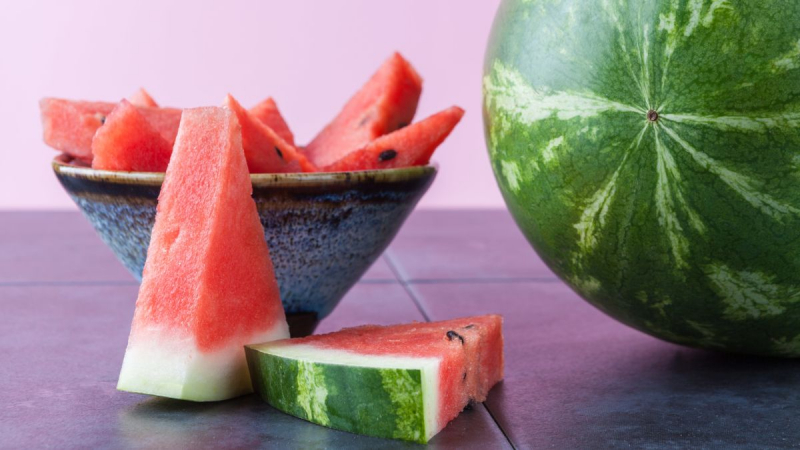
Watermelon 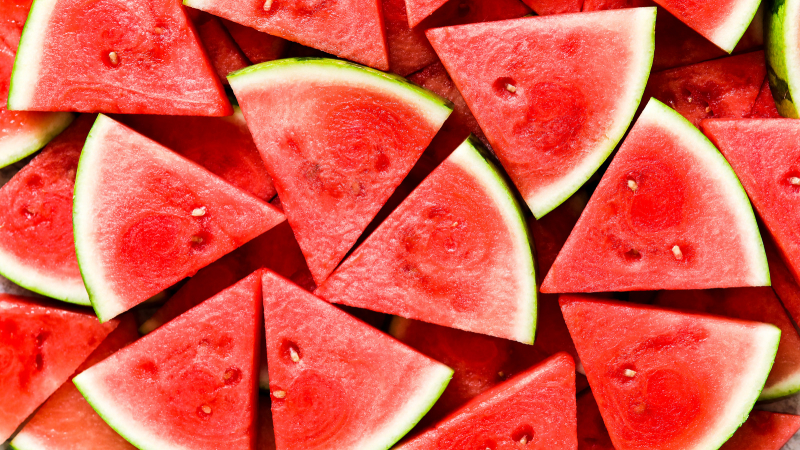
Watermelon -
Coconut water is a very hydrating beverage. It is a delectable, found naturally electrolyte-rich beverage that can enhance your kidney health, heart, and blood sugar levels while also keeping you hydrated and refreshed after exercise.
Given that it includes essential electrolytes that help in taking water into your cells, it is a great natural substitute for sports drinks. Additionally, its natural sugars give you energy while you work-out and help in restocking your glycogen stores afterward. 1 cup (240 mL) of coconut water has 13% of your daily value (DV) for potassium. Additionally, it contains a lot of magnesium, sodium, and manganese. After a sweaty workout, coconut water is particularly refreshing when served chilled with ice. Just be sure to stay away from kinds that have sugar added.
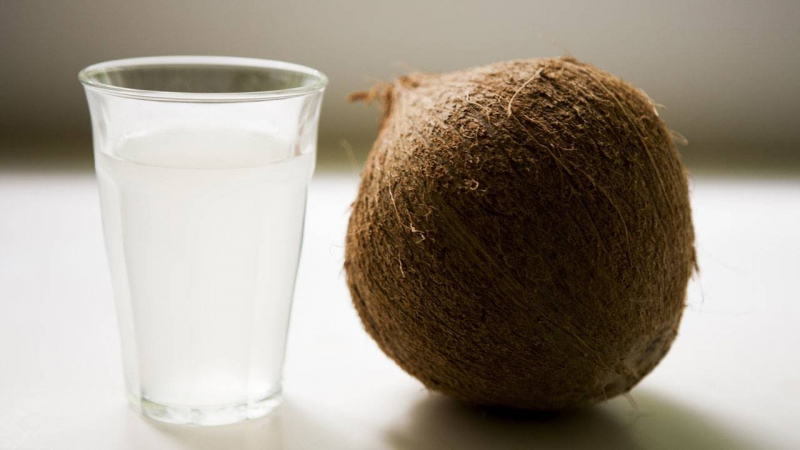
Coconut water 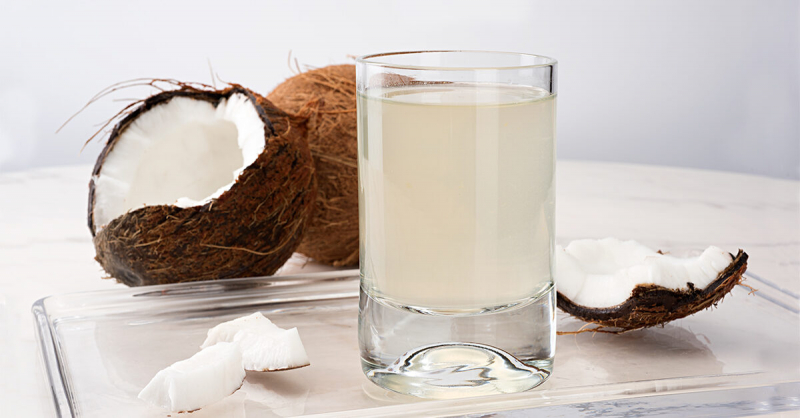
Coconut water -
Beans are a good source of plant-based protein and complex carbs. They are also great sources of protein, dietary fiber, B vitamins, and a wide range of other vital vitamins and minerals. There is some proof that they can support heart health, gut health, and blood sugar management.
With a whopping 21% of the DV, just 1 cup (179 grams) of white beans offers twice as much potassium as a banana. Black beans, in the same serving, provide 13% of the DV. The antinutrient phytates, which are present in black beans and may prevent your body from absorbing certain minerals, can be reduced by soaking dried beans overnight since phytates will leach into the water. Both black and white beans are very adaptable and simple to include in salads, burritos, and stews.
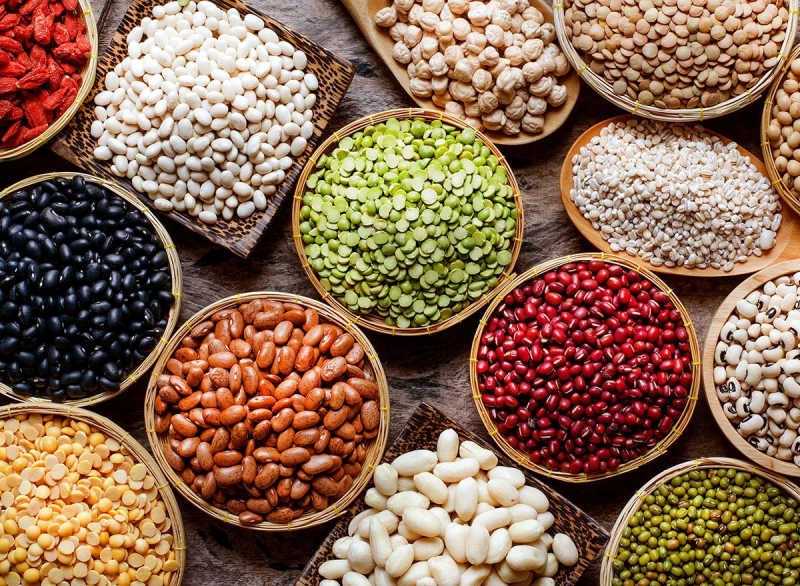
Beans 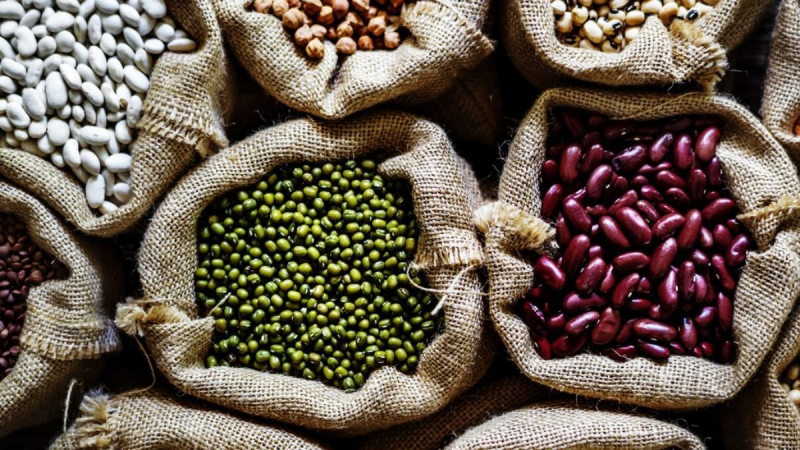
Beans -
One of the top plant-based protein sources is legumes. They are a staple in many countries since they are affordable and highly nutritious. Legumes have a number of positive health effects. They are one of the best sources of plant-based protein and have an outstanding nutritional profile.
Lentils, chickpeas, soybeans, and peanuts are other members of the legume family that are high in potassium. For instance, a 1-cup (198-gram) serving of lentils has 15% of the daily value (DV) for the mineral, compared to 10%, 19%, and 23% of the DV in the same servings of chickpeas, soybeans, and peanuts. Phytates are present in some legumes, including lentils and chickpeas. To lower their phytate level, keep in mind to soak them overnight. Sprouting them is another option.
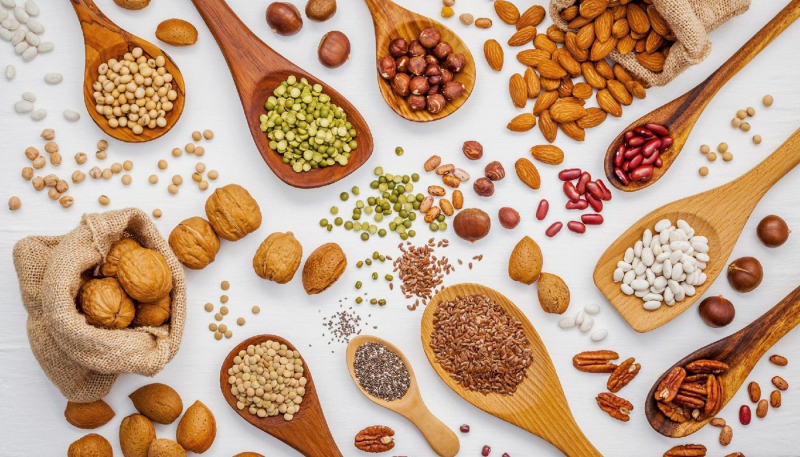
Legumes 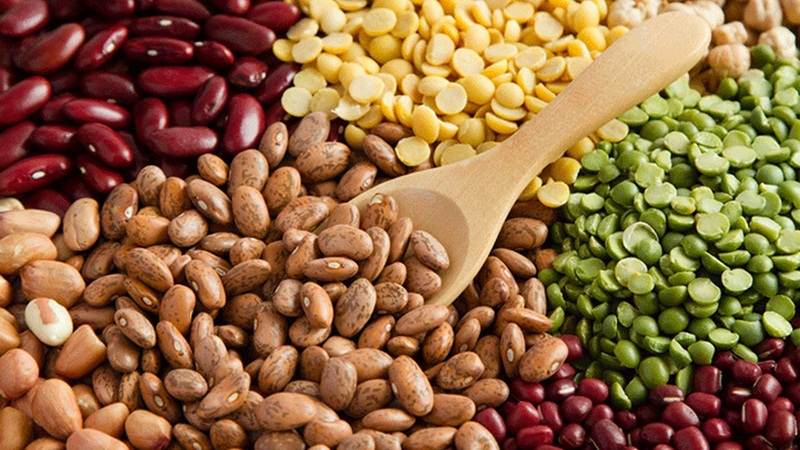
Legumes -
Tomato paste is a handy basic you'll want to keep in the cupboard whether you cook frequently or not. Since it is simply the essence of tomatoes in concentrated form, it provides nutritional content that is comparable to fresh tomatoes.
Tomato paste is made from cooked, peeled, and seeded tomatoes. One tablespoon of tomato paste, which is also a significant source of antioxidants, provides 3–6% of your daily requirements for iron, potassium, and B vitamins. Tomato paste is rich in vitamin C and lycopene, a potent antioxidant with anti-cancer properties. This concentrated condiment adds taste to all tomato-based dishes and sauces, but watch out for items that have extra sugars, additives, or preservatives. You might want to select the product with the fewest ingredients.
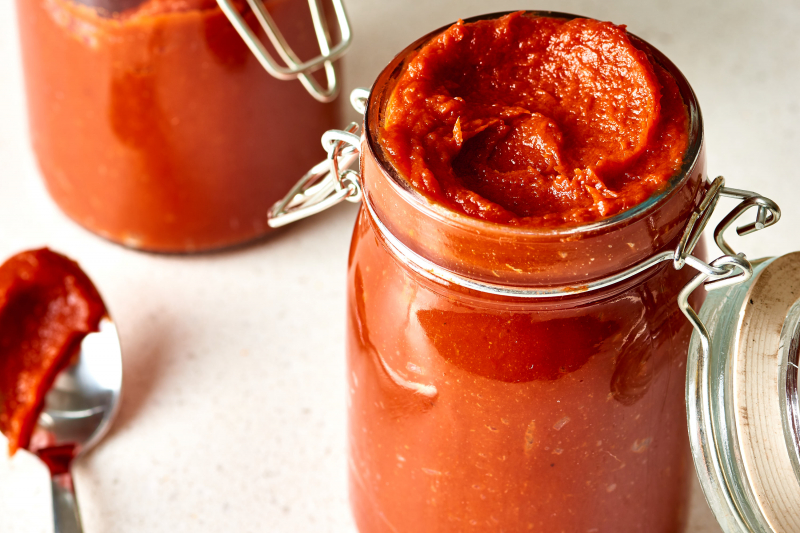
Tomato paste 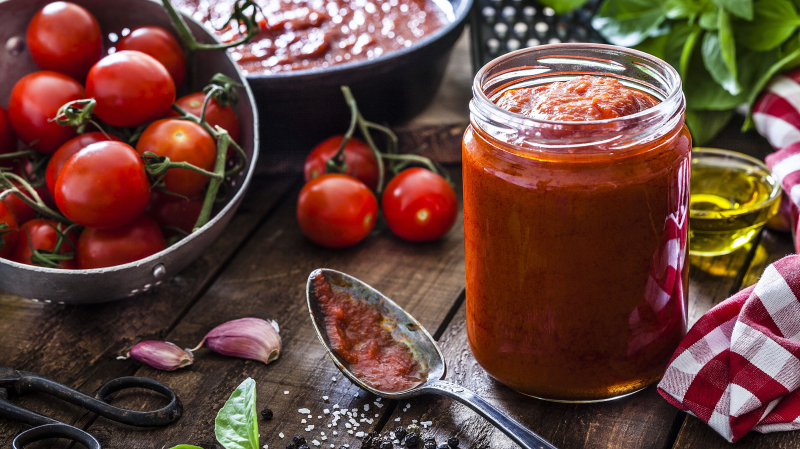
Tomato paste -
Winter squash with a sweet flavor is butternut squash. Although it is a fruit, it is prepared like a root vegetable. 12% of the DV for potassium is provided by just 1 cup (205 grams).
Along with being a significant source of vitamins A and C, it also contains small levels of magnesium, vitamin E, and B vitamins. The important vitamins, minerals, and disease-preventive antioxidants found in butternut squash are abundant. You may be able to lose weight and ward off diseases like cancer, heart disease, and mental decline with the help of this low-calorie, high-fiber winter squash. It can also be easily used in both sweet and savory dishes, making it flexible. Butternut squash is simple to roast, boil, steam, or chop for recipes like roasted vegetables or hearty soups.
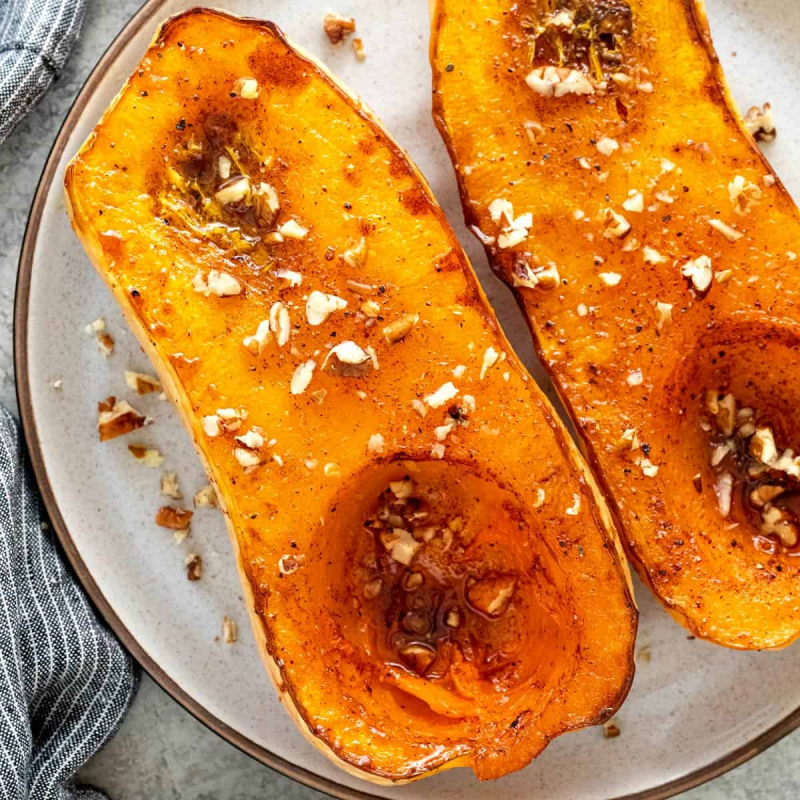
Butternut squash 
Butternut squash -
It's not common knowledge that potatoes are healthy. However, this versatile vegetable has some surprising benefits in terms of nutrition and health. Although potato products like french fries and potato skins may be high in calories and fat, potatoes themselves are sodium- and fat-free. When properly done, potatoes can be a delicious, filling, and nutritious food.
Fiber, which helps you lose weight by keeping you fuller longer, is found in potatoes. By regulating blood sugar and cholesterol, fiber can help avoid heart disease. Additionally, potatoes are a great source of vitamins that support healthy bodily functioning and antioxidants that fight disease. 12% of the DV for potassium is provided by one medium-sized boiled potato (167 grams). However, there are numerous potato varieties, and the soil in which they are grown may have an impact on their potassium level.
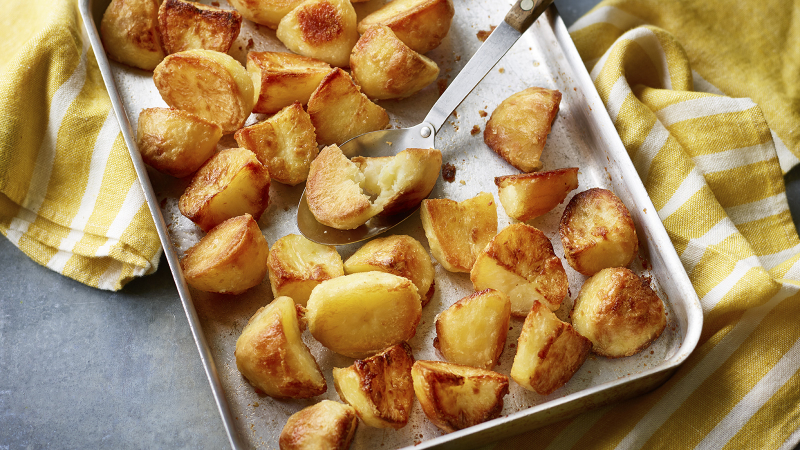
Potatoes 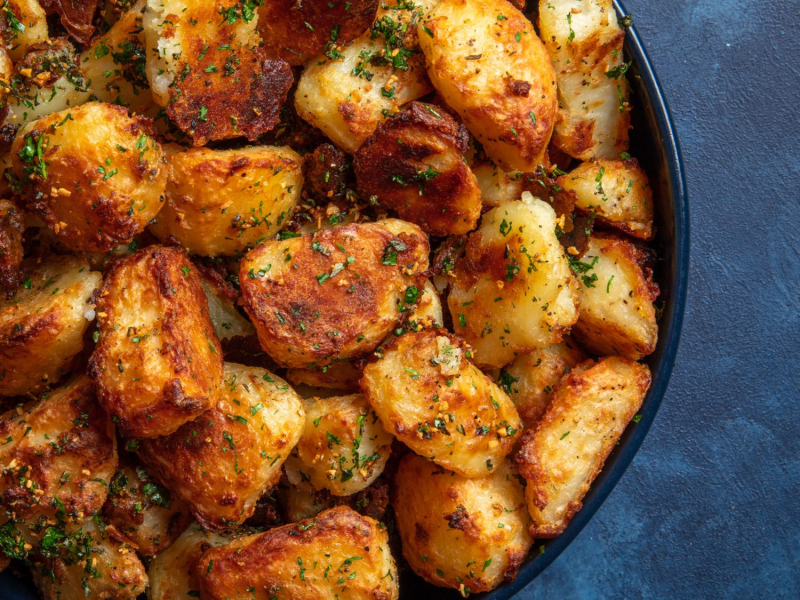
Potatoes -
The majority of dried apricots are pitted and have a lengthy shelf life. Half a cup (65 grams) of potassium provides 16% of the daily value.
94% of the vitamin A and 19% of the iron that your body needs each day are provided by one cup of dried apricots. Additionally rich in potassium and anti-oxidants, dried apricots are believed to reduce cholesterol and enhance digestion. Dried apricots have no fat, few calories, and lots of taste. Vitamin C, Vitamin A, and potassium are some of the excellent nutrients found in apricots, which are also rich sources of other vital nutrients. They are a great source of dietary fiber as well as a variety of minerals and phytochemicals that are good for your health. They are food with few calories, with only 48 calories per 100 grams. For a delicious muesli topping or a healthy snack on hikes or camping vacations, try dried apricots.
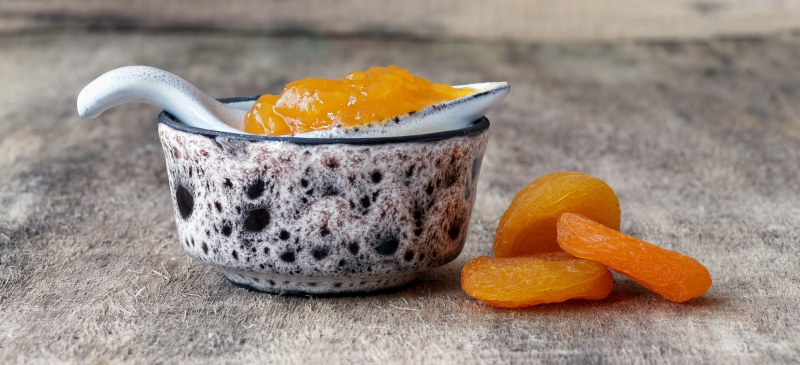
Dried apricots 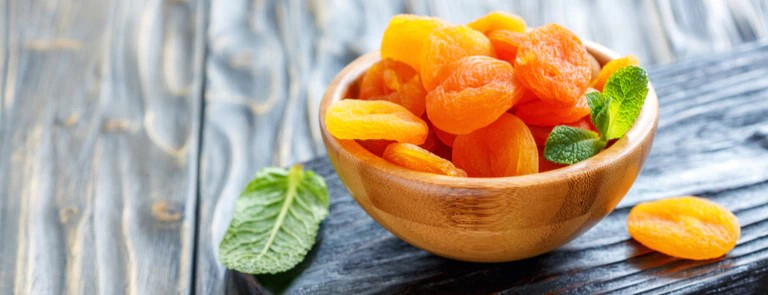
Dried apricots -
Swiss chard is a leafy green vegetable with a thick stalk that varies in color from red to orange to white. It is sometimes referred to as silverbeet or just chard.
Swiss chard is a nutritional powerhouse -- an excellent source of vitamins K, A, and C, as well as a good source of magnesium, potassium, iron, and dietary fiber. 20% of the DV for potassium is provided by just 1 cup (175 grams) of cooked chard, which is more potassium than a banana. While low in calories and high in fiber, one serving has 60% of the DV for vitamin A and 476% of the DV for vitamin K. Rinse the Swiss chard crisp leaves several times in warm water to prepare it. You can boil, steam, or roast leaves and stalks. Swiss chard is simple to steam or sauté with a little oil, and it makes a delicious salad base.
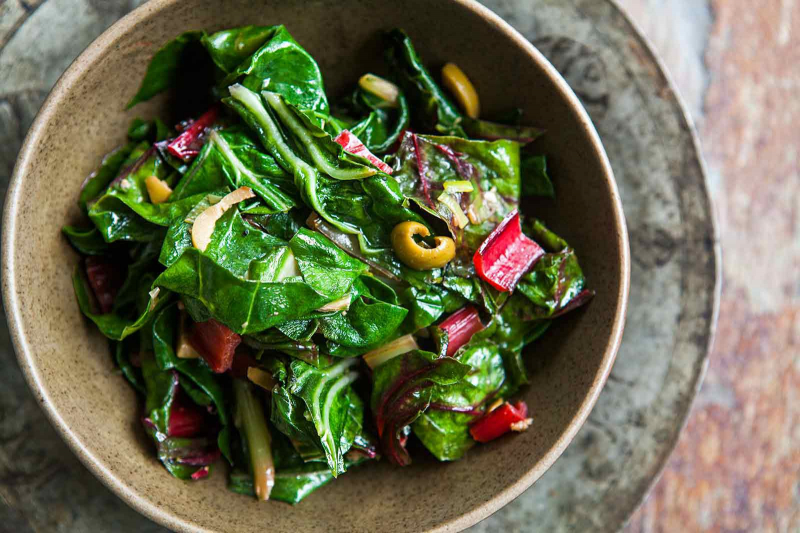
Swiss chard 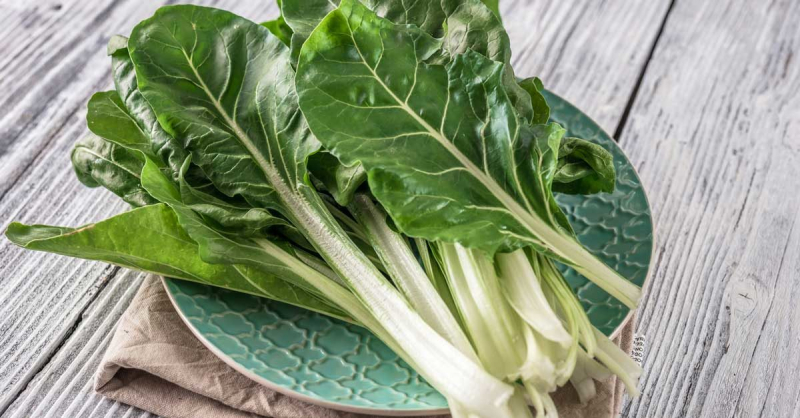
Swiss chard -
Throughout history, from the ancient Mediterranean to George Washington's Mount Vernon, vibrant red or gold beetroot has been cultivated. Beetroot comes in a variety of colors, all of which have the same rich, unpleasant taste and brighten the plate.
1 cup (170 grams) of boiling beets contains 11% of your daily value (DV) for potassium. Additionally, this root vegetable contains nitrates, which, when converted by your body into nitric oxide, have been demonstrated to enhance blood vessel function and overall heart health. The vitamin folate, which is essential for the production and repair of DNA, is also abundant in beets; 1 boiling cup, or 170 grams, contains 34% of the daily value. Beets can be consumed raw, boiled, or pickled.
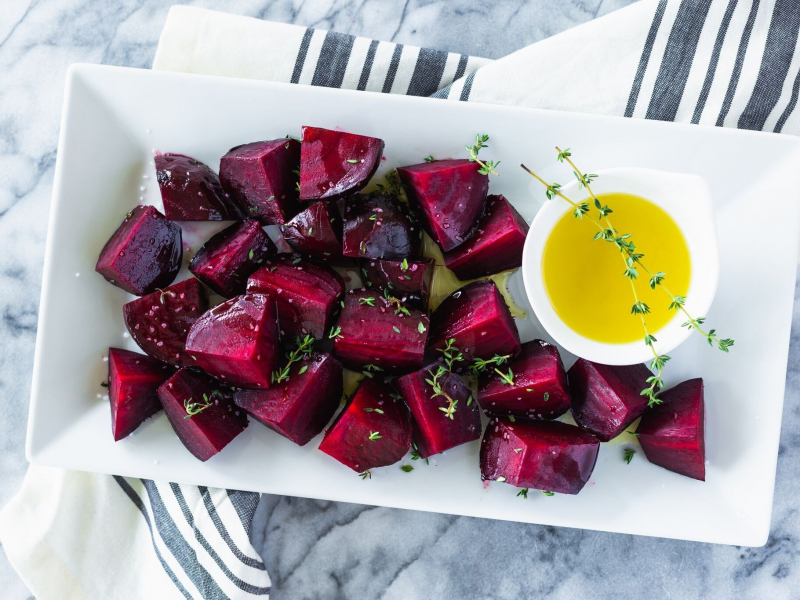
Beets 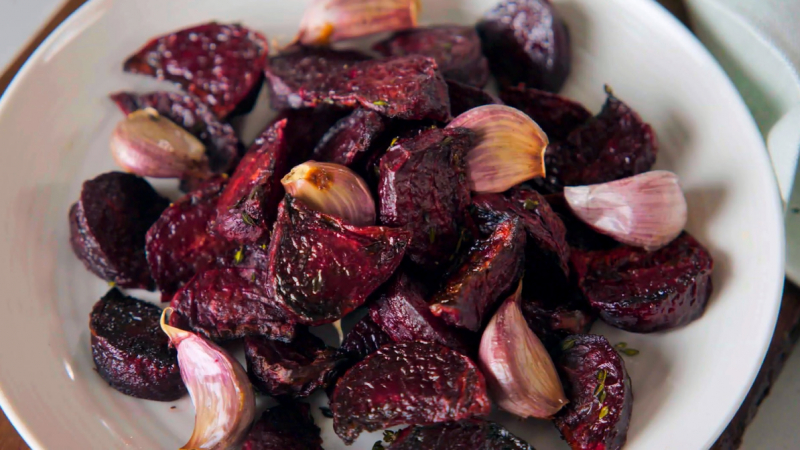
Beets -
Pomegranates have been used for their medicinal benefits for a long time. Pomegranates may even help prevent cancer, according to current scientific research. They can also help protect your heart.
Pomegranates are sour, sweet fruits with red, thick skin. The hundreds of juicy seeds inside the non-edible skin can be eaten on their own or added to salads, oats, hummus, and other foods. It is a fruit with many seeds that range in color from red to purple and are incredibly healthful. The daily value (DV) for potassium is 14% in one whole fruit (282 grams). Pomegranates also contain high levels of folate and the vitamins C and K. Additionally, they contain 4.7 grams of protein per fruit, more than most other fruits (282 grams). Pomegranate juice in bottles is another convenient option to take advantage of some of this tasty fruit's health advantages.
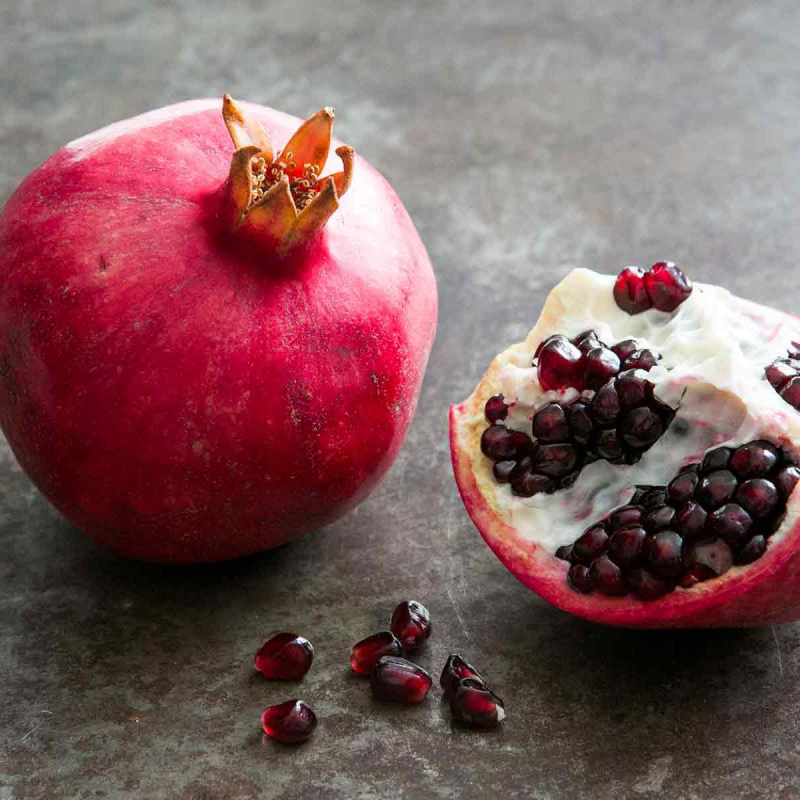
Pomegranate 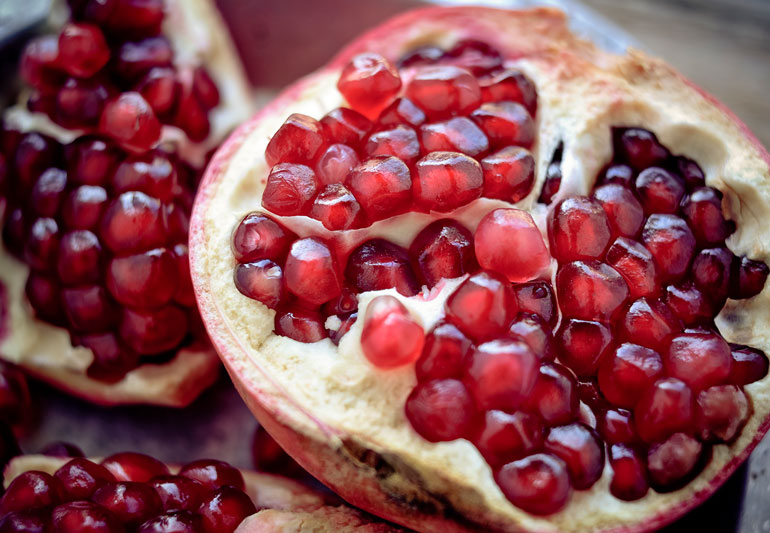
Pomegranate -
Juices made from fruits and vegetables are another quick and simple way to increase your potassium consumption. Juicing extracts the juice from fresh fruits or vegetables. The liquid contains most of the vitamins, minerals and plant chemicals (phytonutrients) found in the fruit.
Juices from citrus fruits seem to contain the highest potassium. One cup (240 mL) of 100% orange juice, for instance, contains roughly 10% of the daily value (DV) for potassium, but the same amount of grapefruit juice has 9% of the DV. Pomegranate juice and other potassium-rich fruits make excellent substitutes. 11% of the DV is contained in a 1-cup (240-mL) serving of pomegranate juice. A few vegetable juices also contain a lot of this mineral. For example, 1 cup (240 mL) of tomato juice has 10% of the DV while the same amount of carrot juice has 15% of the DV.
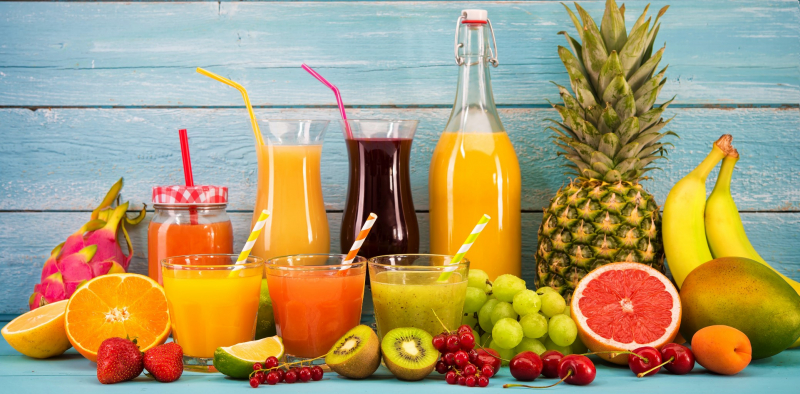
Fruit and vegetable juices 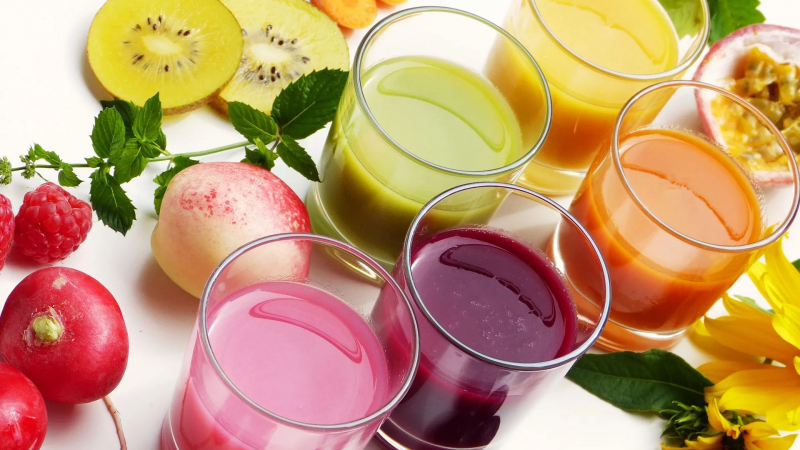
Fruit and vegetable juices

















